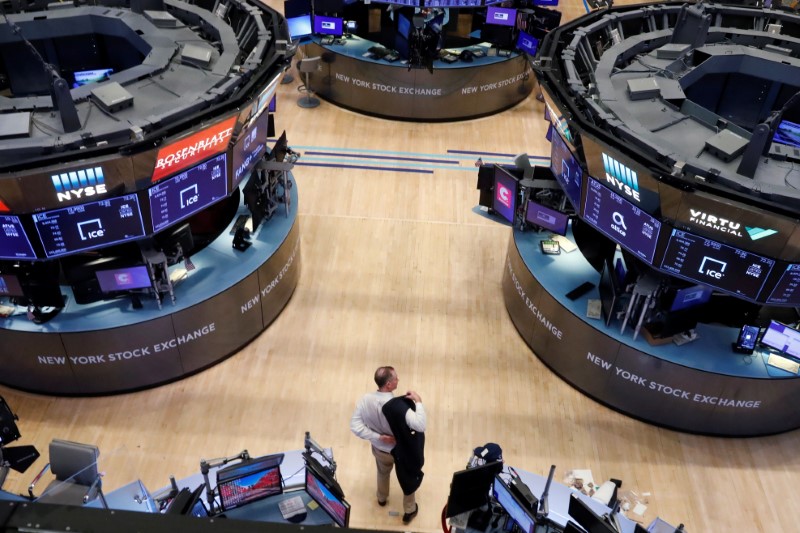By David Randall and April Joyner
(Reuters) - As a $2 trillion relief package makes its way through the U.S. Congress, some investors are finding bargains in consumer discretionary stocks that have been battered in the wake of the coronavirus pandemic.
Provisions in the bill aimed at expanding unemployment benefits and supporting industries hit hardest by the pandemic - and thus keeping consumers' paychecks intact - would provide a boost to the sector, said Brian Jacobsen, a multi-asset strategist at Wells Fargo (NYSE:WFC) Asset Management.
"Through this chaos, this helps provide a runway back to normal," he said.
The massive bill includes a $500 billion (423.3 billion pounds) fund to help industries and a comparable amount for direct payments of up to $3,000 apiece to millions of U.S. families.
Nancy Tengler, chief investment officer of Laffer Tengler Investments, said her firm recently bought shares in Chipotle Mexican Grill Inc (N:CMG) and off-price retailer TJX Companies Inc (N:TJX), and added to positions in Starbucks Corp (O:SBUX) and McDonald's Corp (N:MCD).
Those shares are down between 24% and 31% from their levels on Feb. 19, when U.S. stocks peaked, but Tengler said she expects consumer discretionary stocks to perform well in upcoming months.
Travel-related stocks, many of which are categorized within the consumer discretionary sector, have already begun to rebound in anticipation of fiscal relief. Shares of cruise line operators Carnival Corp (N:CCL) and Royal Caribbean Cruises Ltd (N:RCL) fell nearly 80% between Feb. 19 and March 18, for instance. In the five trading sessions since then, Carnival shares have jumped 67%, and Royal Caribbean shares have surged nearly 90%.
Cruise lines and other travel companies should receive an immediate boost from the aid package, said Ryan Detrick, senior market strategist at LPL Financial.
But in the long run, Detrick said, the biggest beneficiaries of Washington's efforts to bolster the U.S. economy will likely be technology companies, which led in performance among sectors during the recently ended, nearly 11-year bull market and have outperformed in the recent sell-off. The S&P 500 technology sector index (SPLRCT) is down 15% year-to-date, versus a 23% drop for the broader S&P 500 (SPX).
Certain tech stocks are well positioned to withstand expected hits to revenue in the first half of the year, said Oliver Pursche, chief market strategist at 1879 Advisors. His firm sees opportunities in subscription-based software companies such as Microsoft Corp (O:MSFT), Adobe Inc (O:ADBE) and Cisco Systems Inc (O:CSCO).
"They have the most attractive earnings growth profile out there," Pursche said. "Even if revenue gets deferred by a quarter or two, there will prove to be pent-up demand once things get back to normal."
Such resilience will be critical should the aid bill not be enough to stave off a deep recession - or if it fails to pass Congress at all. Those possible scenarios have kept some portfolio managers from dipping their toes back into stocks even at bargain prices.
"It's close to the end zone, but they still might find a way to fumble it," Wells Fargo's Jacobsen said.
As a result, investors say they are evaluating companies' balance sheets as they hunt for bargains.
For Mark Travis, co-founder and a portfolio manager at Intrepid Capital, TJX and shoe brand Skechers USA Inc (N:SKX) are among the companies that fit the bill. Both are well placed to take market share once the economy re-opens, he said.

"They're going to be able to weather the storm a lot longer than their competitors once the initial hit of the stimulus wears off," he said.